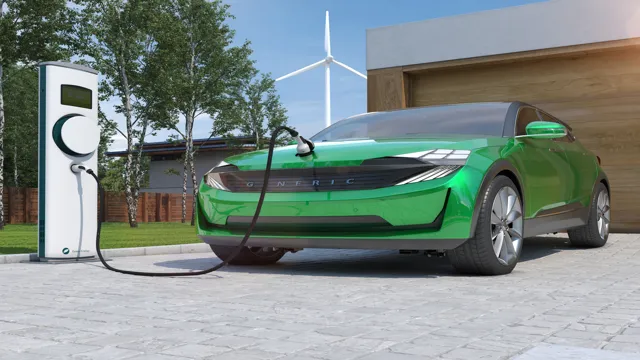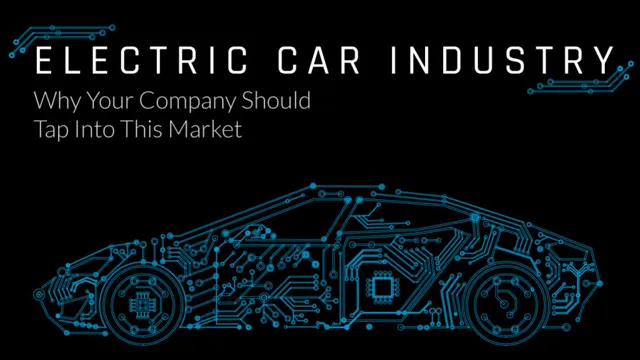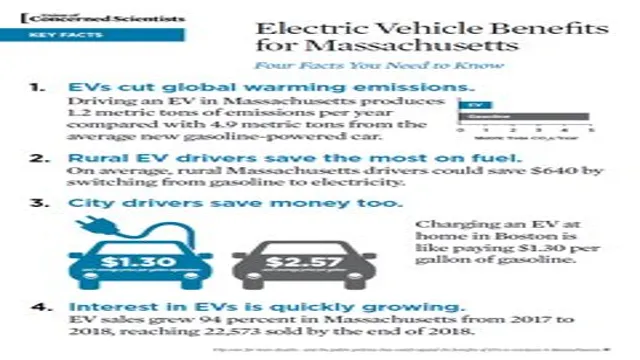Driving Towards Sustainability: How Companies Are Thriving with Electric Cars
Electric cars are the future of transportation, and several companies are already benefiting from this promising shift. With increasing awareness about the environment and a desire for sustainable living, the demand for electric vehicles is growing exponentially. This unique market caters not only to the general public but also corporate and governmental entities that prioritize eco-friendly practices.
As a result, electric car manufacturers are enjoying significant growth and development, giving rise to a new era of personal transportation. In this blog post, we will explore the top 10 companies that have positioned themselves as leaders in the electric car market and are profiting immensely from the future of transportation.
Tesla: The Pioneers of Electric Cars
One company that is benefiting greatly from the rise in popularity of electric cars is Tesla. Founded by Elon Musk in 2003, Tesla has revolutionized the auto industry by creating stylish and sustainable electric cars that are both luxurious and affordable. With its sleek design and impressive performance capabilities, the Tesla Model S quickly became a favorite among eco-conscious consumers.
Today, Tesla offers a range of electric vehicles, including the groundbreaking Model X and the budget-friendly Model In addition to its electric cars, Tesla is also working towards a sustainable future by creating solar-powered roofs and energy storage solutions. As electric cars become more popular, Tesla is poised to continue dominating the market and pushing the boundaries of sustainability.
Revolutionizing the Automotive Industry
Tesla is revolutionizing the automotive industry with its pioneering electric car technology. With their commitment to sustainable transportation, the company has made significant strides in reducing carbon emissions from vehicles. Tesla’s electric cars are incredibly efficient and can travel long distances on a single charge, making them a popular choice for eco-conscious drivers.
The company’s focus on design and technology has also made their vehicles highly desirable, with their sleek and modern designs setting them apart from traditional gas-powered cars. Tesla’s innovative approach to the automotive industry has sparked competition among other manufacturers, leading to more investment in electric car technology and further advancements in the field. They are truly changing the game and setting a new standard for what is possible in the world of automobiles.

Generating Revenue through Innovative Technology
Tesla is one of the most innovative companies out there when it comes to electric cars. They have revolutionized the industry by creating sleek, high-performing electric vehicles that have a range comparable to traditional gas-powered cars. Not only that, but Tesla has also been successful in generating revenue through their innovative technology.
By offering a range of features that are unique to electric cars, such as autopilot capabilities and over-the-air software updates, Tesla has created a loyal following of customers who are willing to pay a premium for their products. What’s more, Tesla has also been successful in generating revenue through their energy division, which provides battery storage solutions for homes and businesses. With impressive revenue growth and an ever-expanding product line, it’s clear that Tesla has a bright future ahead of them.
General Motors (GM)
When it comes to companies benefiting from electric cars, General Motors (GM) is definitely one of them. In fact, GM has made a great stride within the electric vehicle market by introducing the Chevrolet Bolt, an affordable electric car that has a range of over 200 miles on a single charge. This car has been a hit with consumers, as it offers a great value for the money and doesn’t compromise on range or performance.
GM has also announced its plan to introduce 30 new electric vehicles globally by 2025, which will further solidify their position in the market. With the growing demand for electric cars, GM is well-positioned to grow and expand its offerings in this space. As a result, the company is primed to take advantage of the tremendous potential that the electric car market presents.
Leading the Charge with the Chevy Bolt
GM, Chevy Bolt General Motors (GM) has undoubtedly taken the auto industry by storm with its revolutionary electric vehicle – the Chevy Bolt. It has set the benchmark for future EVs in the market with its impressive range of 238 miles per charge. The Bolt’s spacious interior and cutting-edge features make it the perfect car for the tech-savvy, environmentally-conscious driver.
The Bolt’s affordability has made it accessible to mainstream consumers, and it’s fast-charging technology has transformed the traditional idea of owning an electric vehicle. GM’s decision to invest heavily in EV technology has paid off, as the Chevy Bolt has won countless awards, including Motor Trend’s 2017 Car of the Year and was a finalist for the 2017 North American Car of the Year. It’s no surprise that other automakers are now scrambling to catch up with GM in the race for electrification.
GM’s Chevy Bolt is not only driving the EV market forward but is also doing its part to revolutionize the way we travel.
Staking Their Claim in the Electric Market
The automobile industry is experiencing a huge shift towards electric vehicles, and General Motors (GM) is staking their claim in this market. The company has recently announced their plans to invest $27 billion to produce electric and autonomous vehicles, with the goal of selling only zero-emissions vehicles by 203 This is a bold move for GM, but they are determined to be at the forefront of this industry-wide transition.
They have also introduced several all-electric models, such as the Chevrolet Bolt EV and the Cadillac Lyriq SUV, which have received positive reviews for their performance and design. With their commitment to reducing emissions and improving sustainability, GM is positioning itself as a leader in the evolving electric vehicle market. This move by GM is just the beginning, and it will be interesting to see how other automobile companies respond to this shift towards electric vehicles.
Investing in a Sustainable Future
Investing in a sustainable future is a top priority for many companies nowadays, and General Motors (GM) is no exception. As one of the largest automakers in the world, GM understands the importance of promoting sustainability and reducing their carbon footprint. That’s why they have set some ambitious sustainability goals for the near future.
By 2025, they aim to use 100% renewable energy in their worldwide operations, which will significantly reduce their environmental impact. Additionally, they plan to produce zero emissions vehicles and achieve a world with zero crashes, emissions, and congestions. To achieve these targets, GM has been investing in research and development to find innovative solutions and sustainable technologies.
Their efforts have already started showing results, with their next-generation battery system promising longer range, faster charging times, and higher energy density. With such initiatives, GM is not only contributing to environmental sustainability but also helping to create a cleaner and healthier planet for generations to come.
Nissan: The Affordable Electric Car Maker
Nissan is surely one of the electric car makers who have been benefiting tremendously from the growing demand for eco-friendly solutions. The company’s affordable electric models, including the Nissan Niro, have made it a popular choice among consumers who are looking to switch to a more sustainable transportation option. Although Nissan started manufacturing electric cars a bit later than some of its competitors, it has quickly caught up and has been able to make a huge impact in the market.
One of the reasons behind Nissan’s success is the company’s focus on innovation coupled with cost-efficiency. The affordable electric cars are not only eco-friendly but also offer practical and functional features that are essential for every driver. Nissan’s commitment to sustainability and affordable electric cars supports the company’s mission to provide better access to electric vehicles for everyone.
With this approach, Nissan has gained a loyal customer base, and it’s likely that the company will keep on growing in the future as more consumers become aware of the benefits of electric cars.
Driving Down Costs of Electric Vehicles
Nissan has been at the forefront of driving down costs of electric vehicles, making them more affordable for everyday consumers. With their popular electric car models, such as the Nissan Leaf, the company has managed to reduce the prices of electric vehicles by implementing cost-saving measures in manufacturing and materials, without sacrificing quality and performance. As a result, more people can now consider making the switch to an electric vehicle as Nissan’s models are competitively priced, making them an attractive option in the market.
Nissan’s dedication to affordability and sustainability is a step in the right direction for the automotive industry, and their efforts to make electric vehicles accessible to a wider audience should be commended.
Partnering with Major Automakers to Expand Production
Nissan is one of the major automakers that has taken a giant leap towards the production of affordable electric cars. The company has set their sights on the future, and it involves offering the public a vast range of electric vehicles that fit their budget. Nissan is partnering with other major automakers to ensure that they can expand their production to reach more people globally.
The company has created a lineup of electric cars that are not only affordable but also come with advanced features that are normally found in more expensive models. Nissan’s electric cars are designed to be efficient, environment-friendly and offer an affordable alternative to traditional gasoline vehicles. They have embraced the change towards electric vehicles and are leading the way in the industry.
Their electronic cars have received numerous accolades globally, and it is easy to see why. Nissan’s Leaf is among the most popular electric vehicles in today’s market, and with their advancements, they continue to lead in the market.
BMW: Luxury Meets Electric
It’s no secret that with the rise of electric cars, certain companies are benefiting greatly, and BMW is no exception. With their innovative line of luxury electric vehicles, BMW has managed to stay ahead of the curve in the rapidly evolving automotive industry. Their flagship model, the BMW i3, is a prime example of what can be achieved when luxury meets electric.
The i3 boasts an impressive range of up to 153 miles on a single charge, making it ideal for city driving, and its sleek and stylish design make it a head-turner on the road. Not only that, but the i3 is also environmentally friendly, emitting no harmful emissions and utilizing sustainable materials in its construction. Overall, BMW’s commitment to luxury and innovation has paid off in the form of a successful line of electric vehicles that is sure to only continue to grow in popularity in the coming years.
Integrating Electric with High-End Design
BMW has proved that electric vehicles can be a luxurious mode of transportation. The company’s latest models have merged their innovative green technology with high-end design, providing a sleek and stylish appearance. The BMW i3, for example, sports a minimalistic, yet futuristic design that exudes luxury.
Its interior is made of sustainable materials, including recycled plastic and renewable kenaf plant fibers, ensuring both eco-friendliness and sophistication. Moreover, BMW has integrated smart features in their EVs, such as advanced parking assist, an innovative infotainment system, and a range predictor that displays information about the remaining distance and battery life. The company’s devotion to electric innovation has brought the world closer to a cleaner and more sustainable future, proving that eco-friendliness and luxury can coexist with ease.
Expanding Electric Line with Upcoming i4 Model
BMW is set to expand its electric line-up with the upcoming i4 model, combining luxury with eco-friendliness. This new addition to the BMW family is highly anticipated as it represents a significant step towards a more sustainable future. With the i4, BMW aims to challenge the traditional perception of electric cars as lacking in style and performance.
The i4 will feature a sleek design, impressive acceleration, and a driving range of up to 300 miles. This is made possible by BMW’s technology and engineering innovations, which have allowed them to produce an electric car that truly delivers in terms of both style and functionality. The i4 will join BMW’s current electric lineup, which includes the i3 and iX3 models.
With this expansion, BMW is showing its commitment to clean energy and its dedication to remaining at the forefront of automotive innovation.
Ford: A Legacy Goes Electric
As the world moves towards more sustainable energy options, companies across various industries are looking to take advantage of electric cars. One such company is Ford, which has been at the forefront of automotive innovation for over a century. With the launch of its electric vehicles, including the Mustang Mach-E and the upcoming F-150 Lightning, Ford has positioned itself as a leader in the transition to electric vehicles.
The company’s shift to electric cars not only benefits the environment but also allows for cost-saving measures, as electric cars have lower operating and maintenance costs. Plus, with incentives offered by the government, electric vehicles are becoming more affordable for consumers. By embracing electric technology, Ford is ensuring that its legacy lives on while adapting to meet the changing needs of consumers and the planet.
Ultimately, companies that embrace sustainable energy options will not only benefit financially but will create a better future for all.
First to Introduce Mass-Produced Electric Cars
Ford made history by being the first to introduce mass-produced electric cars. Their legacy as an innovator in the automotive industry continues with the release of their all-electric Mustang Mach-E. Back in 1914, they developed a gasoline-electric hybrid vehicle called the CitiCar.
They also produced the Detroit Electric, which was entirely powered by electricity and topped out at 20 miles per hour. However, it was the Model T that put Ford on the map as the leader in mass-produced transportation. It was reliable, affordable, and efficient.
Now, over a century later, Ford is still leading the charge in electric vehicles, and their commitment to sustainability is unwavering. They understand that electric cars are an essential part of the future of transportation and are dedicated to producing high-quality, eco-friendly vehicles that meet the changing needs of drivers everywhere.
Partnering with Rivian to Expand Product Line
Ford has been a household name in the automobile industry for over a century. With such a distinguished reputation, the company is constantly looking to innovate and stay ahead of the curve. That’s why Ford’s partnership with Rivian is such an exciting development for electric vehicle enthusiasts.
As one of the leading manufacturers of electric adventure vehicles, Rivian’s technology and expertise will be instrumental in Ford’s shift towards sustainable and eco-friendly transportation. Their collaboration will expand Ford’s product line with the introduction of a new electric vehicle, with the potential for more in the future. This is a significant moment for Ford, which has always been associated with reliability and durability.
With electric vehicles taking the automotive industry by storm, Ford’s legacy will now also be powered by sustainability and innovation.
Volkswagen: Revolutionizing to Meet Electric Needs
Volkswagen is one of the leading companies that is benefitting greatly from the evolution of electric cars. In recent years, the automotive industry has recognized the increasing demand for environmentally friendly and energy-efficient vehicles. Volkswagen has taken big steps to revolutionize its manufacturing process to meet the needs of the growing electric market.
The company has made massive investments in research and development to create new electric car models, such as the Volkswagen ID.4 and the Volkswagen ID.
These cutting-edge cars offer high performance, durability, and energy efficiency that are unmatched by traditional combustion engines. Furthermore, Volkswagen has invested in building a strong charging infrastructure network to ensure that their electric vehicles have enough charging points. With these efforts, Volkswagen has become a major player in the electric vehicle market, demonstrating that high-quality vehicles and environmentally friendly practices can go hand in hand.
Overall, Volkswagen is a prime example of companies that are benefiting from electric cars and are adapting to meet the needs of a changing world.
Investing in Electric for a Sustainable Future
Volkswagen has been at the forefront of the electric vehicle revolution, recognizing the need for sustainable transportation options. As the world grows increasingly concerned about the impact of transportation on the environment, it is essential to take steps towards more eco-friendly alternatives. Volkswagen is taking this challenge head-on, investing heavily in electric vehicle technology and infrastructure.
Their aim is to make electric vehicles more accessible and affordable to consumers worldwide. One of the main advantages of electric vehicles is their eco-friendliness, as they produce zero emissions when driven. Volkswagen understands the importance of reducing carbon emissions, which is why they have committed to reducing their CO2 emissions by 30% by the year 202
The company plans to achieve this target by investing over $50 billion in electric vehicle technology, infrastructure, and renewable energy. They aim to sell 1 million electric vehicles by the end of 2025 and to become carbon neutral by 2050. Volkswagen has already made significant strides in this direction, with the launch of their all-electric ID.
4 SUV. The ID.4 boasts a range of up to 250 miles on a single charge, making it suitable for everyday use.
The company plans to launch several more electric models in the coming years. They have also invested in charging infrastructure, with the aim of having more than 18,000 public charging points across Europe by the end of 202 Investing in electric technology is essential for a sustainable future.
Volkswagen’s commitment to sustainability is commendable, and their efforts to make electric vehicles more accessible and affordable are crucial in the fight against climate change. By choosing sustainable transportation options, we can all contribute towards creating a cleaner, healthier environment for ourselves and future generations.
Launching ID.3 and ID.4 Electric Models
Volkswagen is leading the charge in revolutionizing the automotive industry with their launch of the ID.3 and ID.4 electric models.
These models are the first of many electric vehicles that Volkswagen plans to release in the coming years. With a range of up to 360 miles, the ID.3 and ID.
4 offer a convenient and eco-friendly alternative to traditional gas-powered vehicles. Volkswagen is committed to reducing their carbon footprint and providing their customers with sustainable options. As the world shifts towards electric transportation, Volkswagen is making sure they are at the forefront of the movement.
So if you’re in the market for a new car, consider going electric with Volkswagen’s ID.3 and ID.
Hyundai: Driving Towards a Greener Future
Hyundai is one of the companies benefiting greatly from electric cars, driving towards a cleaner, greener future. With their line of electric and hybrid vehicles, they are making a significant impact in reducing carbon emissions and promoting sustainability. They are committed to promoting the adoption of electric cars globally and have invested heavily in technological advancements to make electric cars more affordable and practical for everyday use.
This includes developing battery technology and expanding their range of electric vehicles to cater to different market segments. By doing so, Hyundai is showing that making a difference in the environment can also be profitable. As more and more consumers prioritize eco-friendliness in their purchasing decisions, companies like Hyundai will continue to benefit from the trend towards electric cars.
Introducing Entry-Level Kona Electric Model
Hyundai has recently announced the release of an entry-level Kona Electric model in order to drive towards a greener future. This move demonstrates the automaker’s commitment to sustainability and the environment. The Kona Electric has already proven to be a popular choice amongst eco-conscious drivers, and the new entry-level model will make it even more accessible to those who want to make the switch to electric vehicles.
By reducing the cost of entry, Hyundai is making it easier for people to adopt a greener lifestyle without sacrificing quality or performance. The Kona Electric model boasts a 258-mile range, making it ideal for daily commuting and longer trips. With this new release, Hyundai is contributing to the reduction of carbon emissions and paving the way towards a more sustainable future.
Investing in Second-Generation Fuel Cell Vehicles
Hyundai, fuel cell vehicles, investing, greener future. Hyundai is one of the leading car manufacturers that is invested in creating a greener future for our planet. Recently, they have been working on second-generation fuel cell vehicles that promise to be even more efficient and environmentally friendly than before.
Investing in these vehicles is not only a smart choice for individuals but also for companies looking to reduce their carbon footprint and improve their sustainability efforts. With Hyundai’s dedication to eco-friendly technology, they have set a new standard in the automotive industry. By embracing fuel cell vehicles, we can pave the way towards a future that is both clean and efficient.
So, if you’re looking to make a positive impact on the environment, investing in a second-generation fuel cell vehicle from Hyundai is a great place to start.
Renault-Nissan-Mitsubishi Alliance: Collaborating for a Better Tomorrow
The Renault-Nissan-Mitsubishi Alliance is a collective effort between three major car manufacturers. One of the reasons behind their partnership is to create sustainable, electric cars that will revolutionize the industry. As the world becomes more conscious of the impact we have on the environment, it’s vital to have companies who are working towards a better tomorrow.
These three companies are doing just that by combining their resources to design and manufacture electric vehicles that are affordable and accessible to everyone. Not only will this benefit the environment, but it will also reduce our dependence on fossil fuels and alleviate rising fuel costs. Companies benefiting from electric cars, like the Renault-Nissan-Mitsubishi Alliance, are paving the way for a cleaner and more sustainable future.
Joint Development of New EV Platform and Charging Network
The Renault-Nissan-Mitsubishi Alliance is taking big steps towards a more sustainable future by teaming up to develop a new electric vehicle platform and charging network. This collaboration will allow the three automakers to share technology and resources, ultimately leading to more affordable and efficient EVs for consumers. By combining their expertise in engineering and manufacturing, the alliance hopes to create a platform that is flexible enough to accommodate a range of vehicle sizes and types.
This joint effort is also expected to lead to advancements in battery technology, which will extend the range of EVs and make them more enticing to the general public. Additionally, the group is working on expanding their charging network, which is vital for making EVs a viable option for daily commuters. The goal is to provide a comprehensive network of charging stations that are easy to access and use, further encouraging the adoption of electric vehicles.
With this partnership, the Renault-Nissan-Mitsubishi Alliance is making a significant contribution to the movement towards sustainable transportation, paving the way for a cleaner and greener future for everyone.
Aggressive Expansion Plans Despite Current Challenges
The Renault-Nissan-Mitsubishi alliance is facing challenges in the current market, but they are determined to aggressively expand their operations and collaborate for a better future. The alliance plans to focus on electric vehicles, autonomous driving, and connectivity technology to improve their offerings and stay ahead of the competition. Despite the pandemic-induced slowdown in the automotive industry, their long-term vision and commitment to sustainability remain unchanged.
By sharing resources and expertise, the alliance aims to create innovative solutions that benefit all of their customers. It’s like a team of superheroes combining their powers for the greater good. The Renault-Nissan-Mitsubishi alliance is here to stay, and they are ready to face any challenges that come their way.
Conclusion
In conclusion, the rise of electric cars has not only brought about a much-needed revolution in the automobile industry, but it has also presented a unique opportunity for businesses to embrace sustainability and save significant costs on fuel. Companies that are quick to adopt electric vehicles can reap the rewards of reduced fuel expenses, tax incentives, and good PR by aligning themselves with the growing global movement towards sustainable transportation. From delivery services to taxi companies, the switch to electric cars not only benefits the environment, but it is also a smart business move that will help companies stay ahead of the curve.
So, whether you’re a large or small business owner, embracing electric cars can help you drive towards a better future while reaping the benefits of cost savings and innovation. How’s that for a shockingly good idea!
FAQs
What are some companies that are benefiting from the rise of electric cars?
Some companies benefiting from the electric car industry include Tesla, General Motors, and BYD.
How are these companies benefiting from the electric car industry?
Companies like Tesla are benefitting from the electric car industry because they are the market leader in electric vehicles and have a loyal customer base. General Motors and BYD are benefiting from their investments in electric vehicle production and battery technology.
Are there any smaller companies that are also benefiting from the electric car industry?
Yes, there are several smaller companies that are involved in electric car production or related infrastructure, such as charging station providers and renewable energy companies.
Are there any risks associated with investing in companies that are benefiting from the electric car industry?
Yes, there are always risks associated with investing in any industry. Factors such as competition, changing consumer preferences, and government regulations can all impact the success of companies in the electric car industry. It is important to do thorough research before making any investment decisions.


![Going Green with Electric Cars: Unlocking the Environmental Benefits [Cited Studies]](https://electriccarwiki.com/wp-content/uploads/2023/10/electric-car-environmental-benefits-with-sitation.webp)


